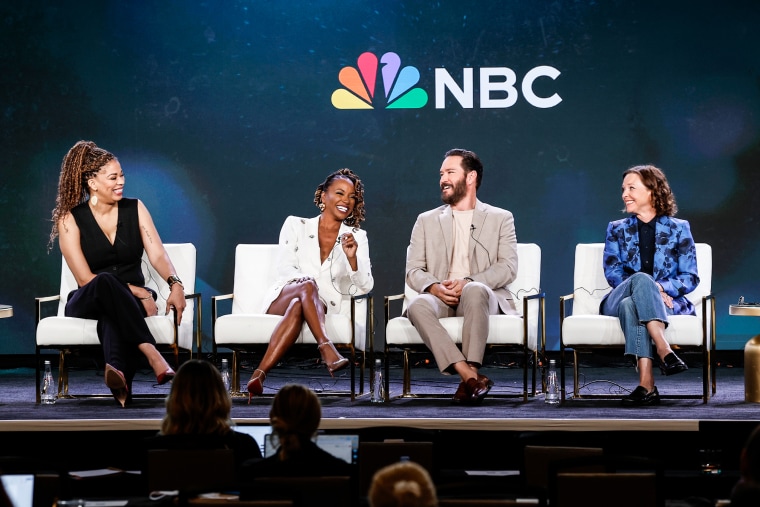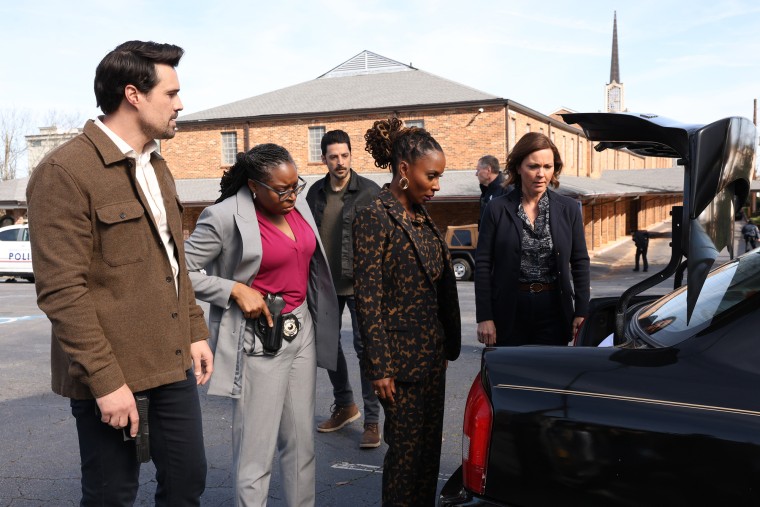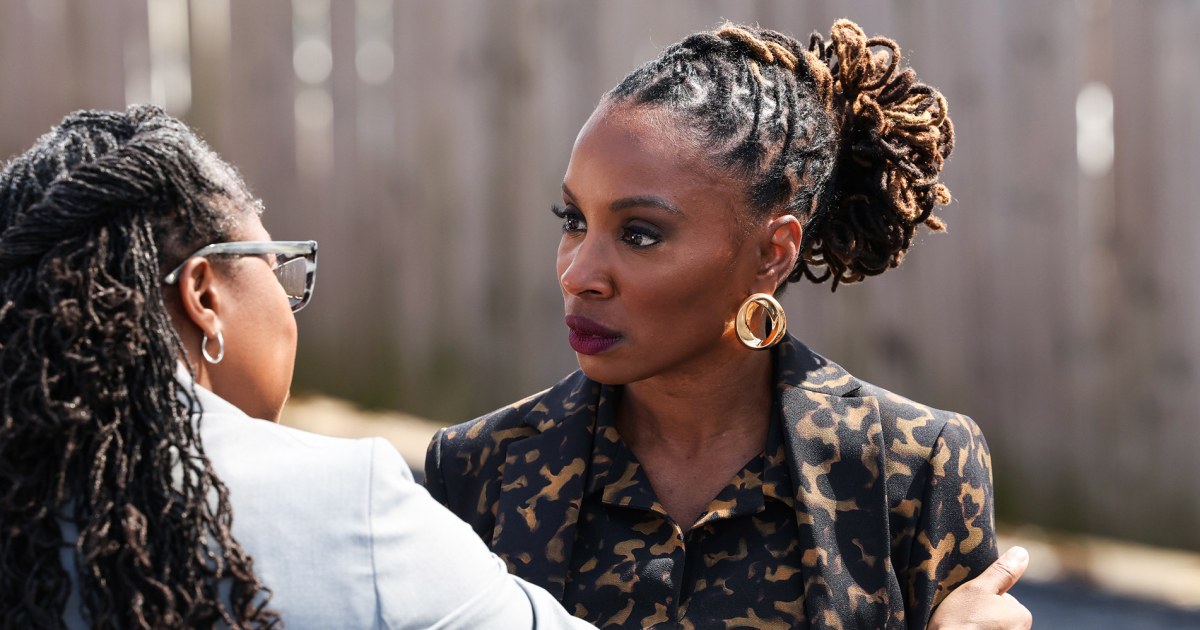After 11 seasons of playing the vivacious Veronica Fisher on the Showtime family dramedy “Shameless,” Shanola Hampton knew she wanted her next project to be as socially relevant as it was creatively fulfilling. She found exactly what she was looking for in the NBC missing-persons procedural drama “Found,” which returns for its sophomore season on Thursday.
Created by “All American” showrunner Nkechi Okoro Carroll, the hit series stars Hampton as Gabi Mosley, a public-relations specialist who has dedicated her life to running a crisis management firm that specializes in tracking down marginalized people who slip through the cracks, years after surviving a year in captivity herself as a teenager.
“This is not something new that has been happening in our community,” Hampton told NBC News. “It has been talked about so much, but the mainstream world hasn’t discussed the discrepancies between people of color or underserved communities and the recognition they get in the media when they go missing compared to others.”
In 2017, Okoro Carroll came across a Time article about the disappearance of more than a dozen Black and Latino children in the Washington, D.C., area, and the disproportionate lack of media coverage and police intervention they received compared to their white counterparts. That story cited the Black and Missing Foundation, a nonprofit dedicated to bringing awareness to missing people of color. Okoro Carroll did not consult the organization until the end of the first season, but said the founders have given their seal of approval.
Okoro Carroll began researching the role that public relations play in missing persons cases, which the Department of Justice reported can add up to 600,000 new missing people every year. She chose to set “Found” in the same world — with the added twist that Gabi has been secretly holding her former kidnapper, Sir, played by “Saved by the Bell” star Mark-Paul Gosselaar, hostage in her basement and using him to solve cases. (NBC and NBC News are both owned by Comcast.)

At the time, Okoro Carroll knew that a show with a deeply flawed Black female lead would be a hard sell for network TV. But the tides have turned, in large part due to the contributions of “Grey’s Anatomy” and “Scandal” creator Shonda Rhimes. The leads in her hit dramas — particularly Kerry Washington’s Olivia Pope on “Scandal” and Viola Davis’ Annalise Keating on “How to Get Away With Murder” — introduced into the cultural zeitgeist Black female characters whose morally questionable decisions made them deeply complicated and beloved antiheroes.
“There is a representation that I take very, very seriously. It really weighs on me to make sure that we are doing for other people what Viola, Kerry and Shonda did in many ways for us … so it’s not as hard next time for the next person,” Hampton said. “To be a dark-skinned girl on network television with natural hair — all mine — and dreadlocks is something that has never been seen on TV before, even by the people that I’ve mentioned.”
For her part, Hampton was most drawn to the opportunity to play a character who contains multitudes. Gaby “being a flawed character was something that I thought was important to represent because not everybody is perfect,” she explained. “People are battling their own demons, and maybe it’s not a man in their basement, but [when it comes to] the healing process of going through trauma, especially in communities of color, we will sometimes sweep things under the rug and not discuss the traumas that have happened in our lives.”
Hampton has also relished an opportunity to subvert the stereotype of the strong Black woman: “To have this character be able to show that, yes, I’m brave and I’m strong and I’m all of those things — all of that is true — but I’m also deeply hurt, and I’m not healed yet … I thought that that was really important to tell, and I think we do a really good job of making those layers known.”

In the second season of “Found,” Gabi’s worst nightmare has come true: Not only has Sir escaped from her clutches, but he has also now recaptured Gabi’s close friend Lacey (Gabrielle Walsh), who was once held captive with Gabi. To add insult to injury, Gabi’s co-workers are now aware of her involvement with her former kidnapper, and she must rebuild trust with them while secretly trying to suss out Sir’s whereabouts.
Whereas the first season found a vengeful Gabi coming to terms with whether she is just as bad as Sir, the second “is layered with her wanting to pay” for her actions, Hampton previewed. “You cannot do something wrong and not pay for that action. There’s so much guilt there. There is the need for penance. There is still the grasping with, ‘What kind of hold does this person have on me?’ which she’s never reflected upon before. He’s done a number on her psychologically.”
While a story centered around the kidnapping of a young Black girl and its traumatic aftereffects could easily fall into exploitative territory, Hampton, who also serves as a producer on “Found,” credited co-showrunners Okoro Carroll and Sonay Hoffman for telling the stories in a way that “is raw and authentic” without glamorizing any of the abuse or violence.
“The fact that we’re actually bringing to light what we’ve been talking about has meant so much to so many people — and not just in the Black community. This has resonated in a way with any community that has been underserved,” said Hampton, who noted that audiences remain divided about how to define the twisted dynamic between Gabi and Sir. “But most responses have been, ‘Thank you for finally telling our story in this way that is making people listen,’ because we’ve made it entertaining.”

Leave a Reply